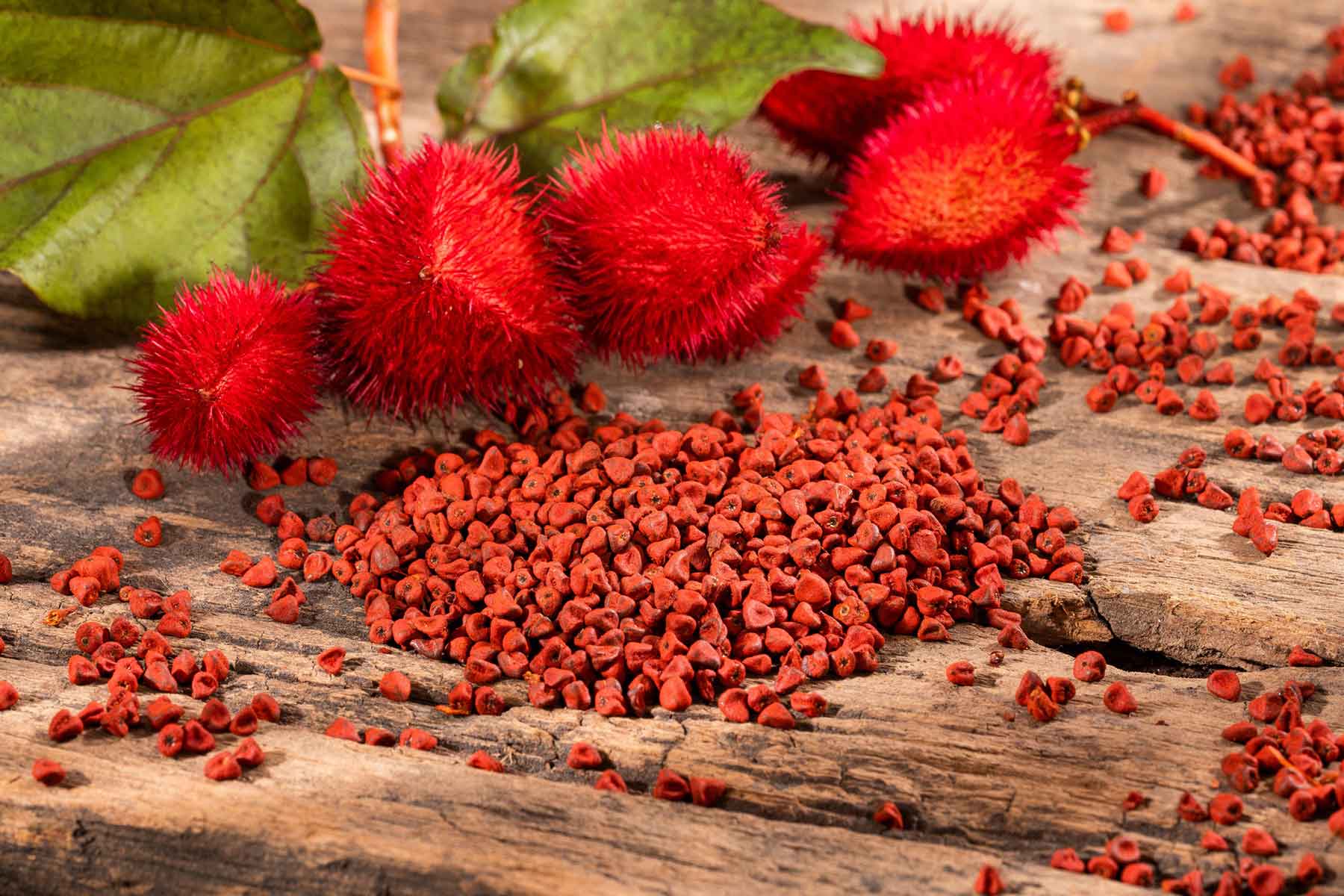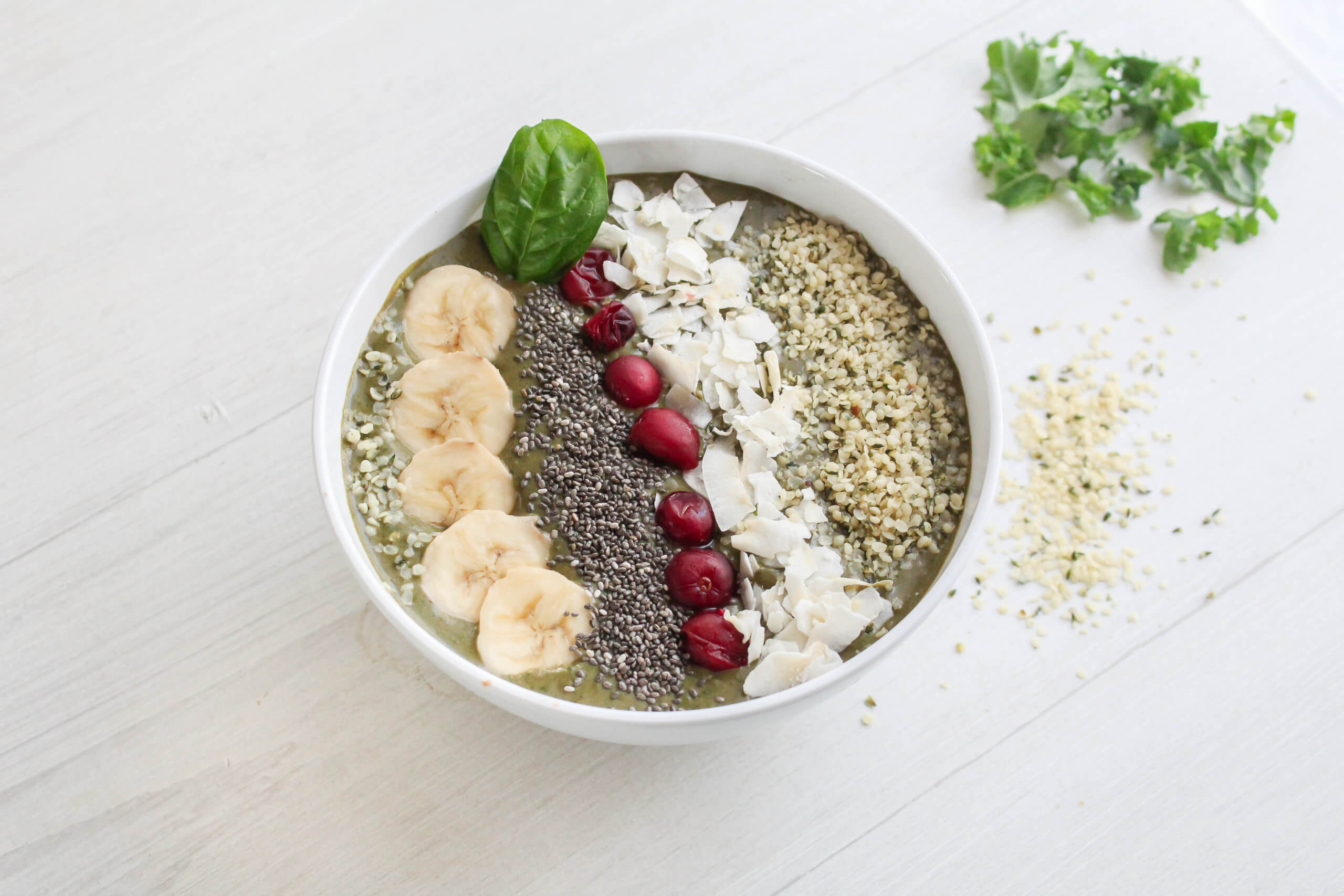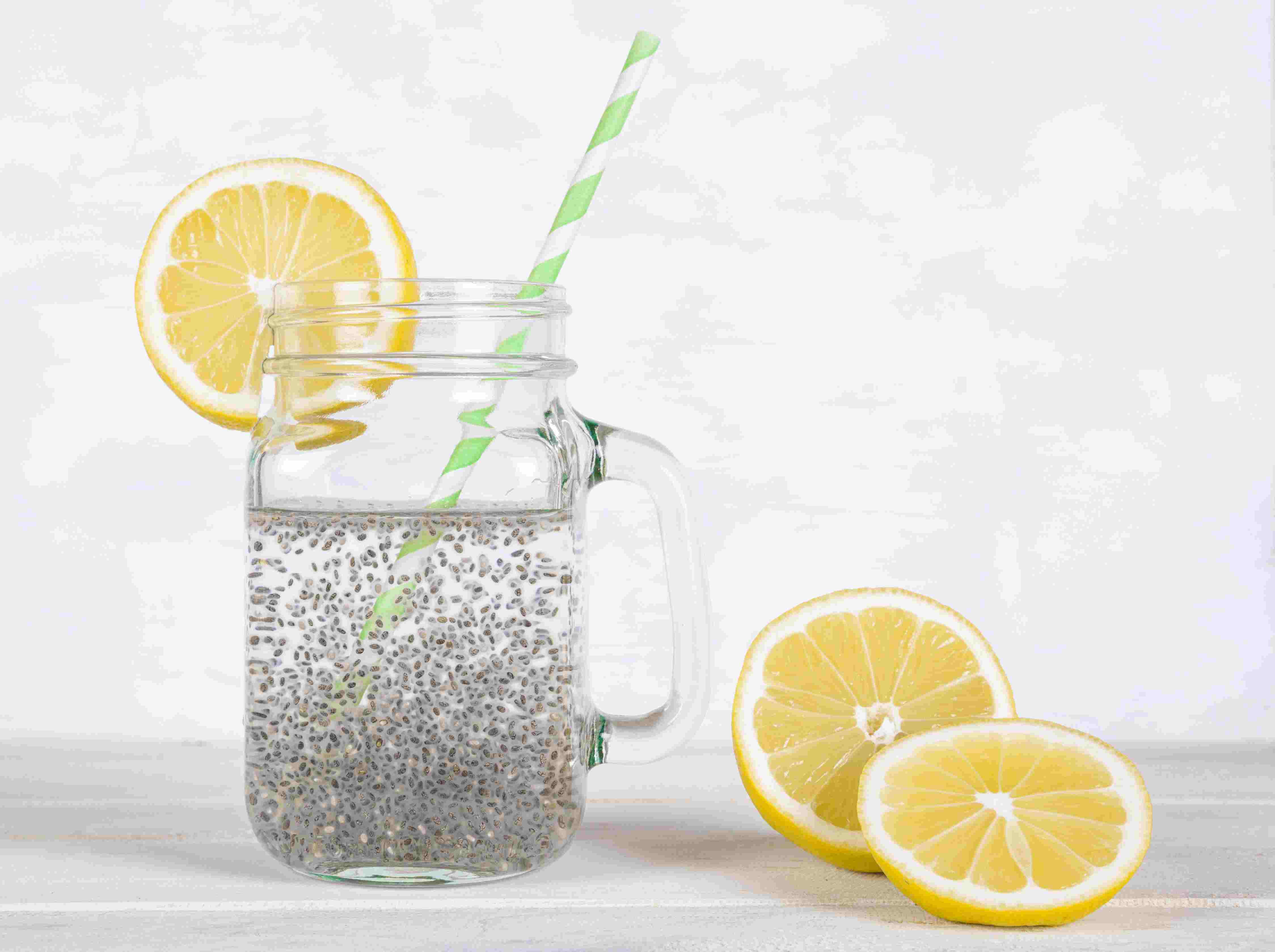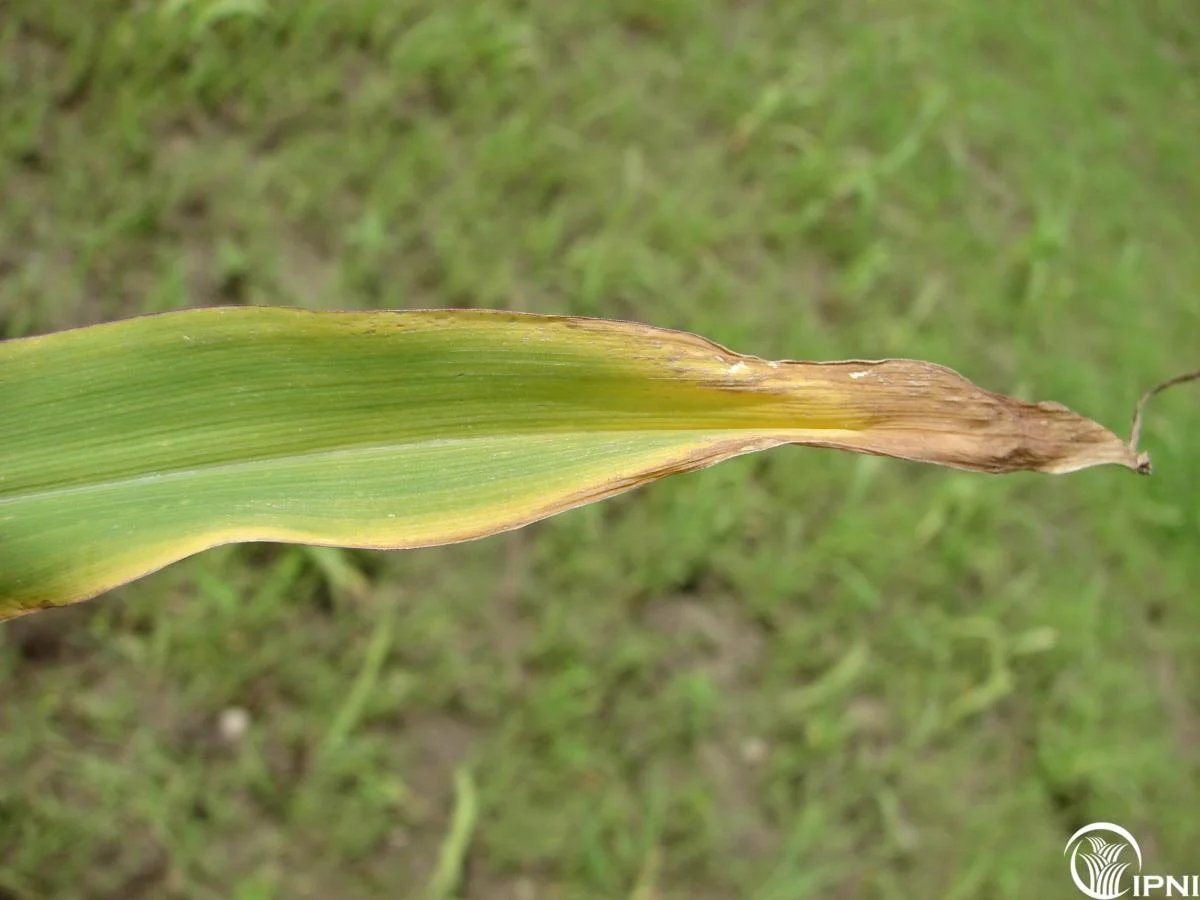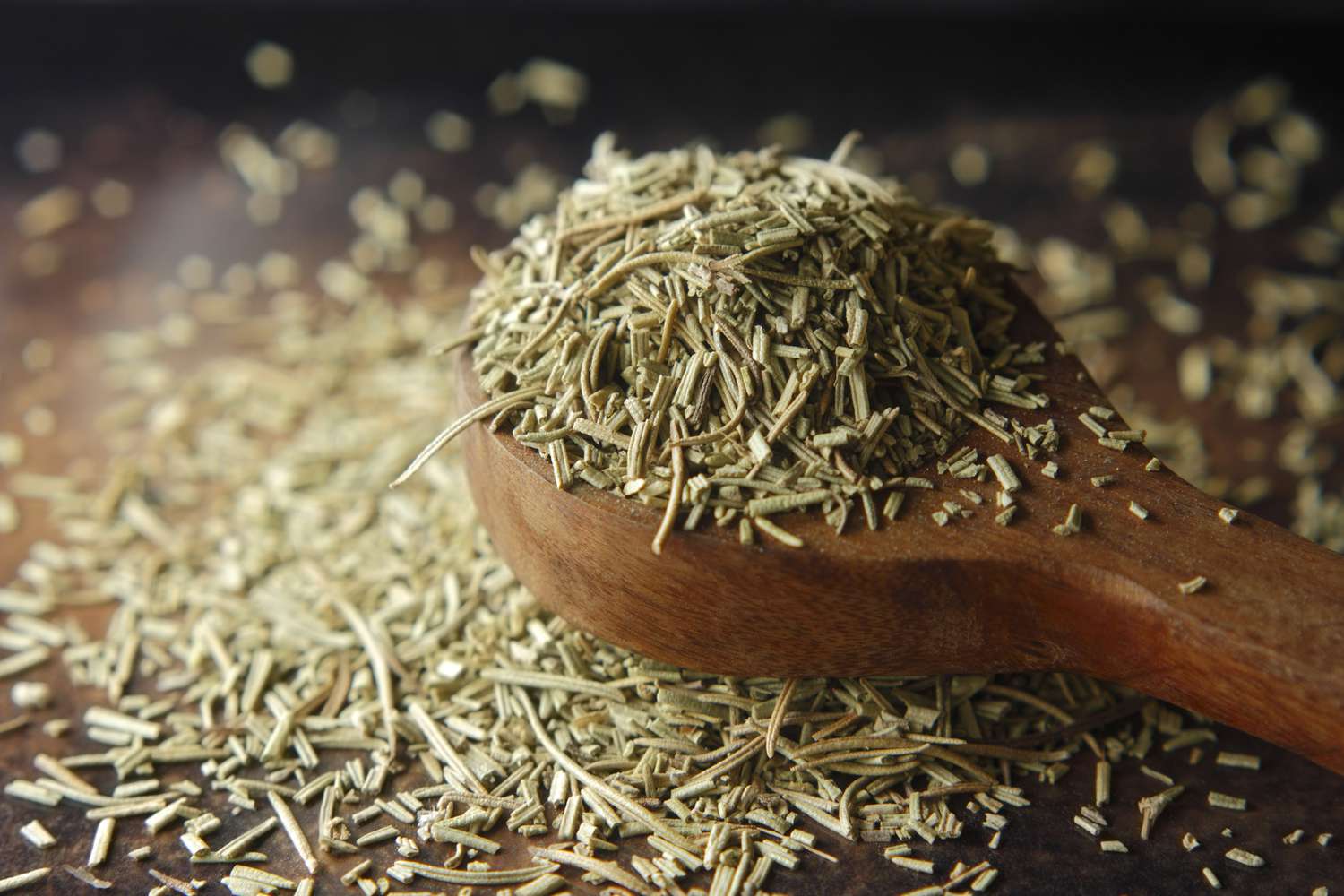Home>Types of Gardening>Edible Gardening>What Are Fennel Seeds Used For
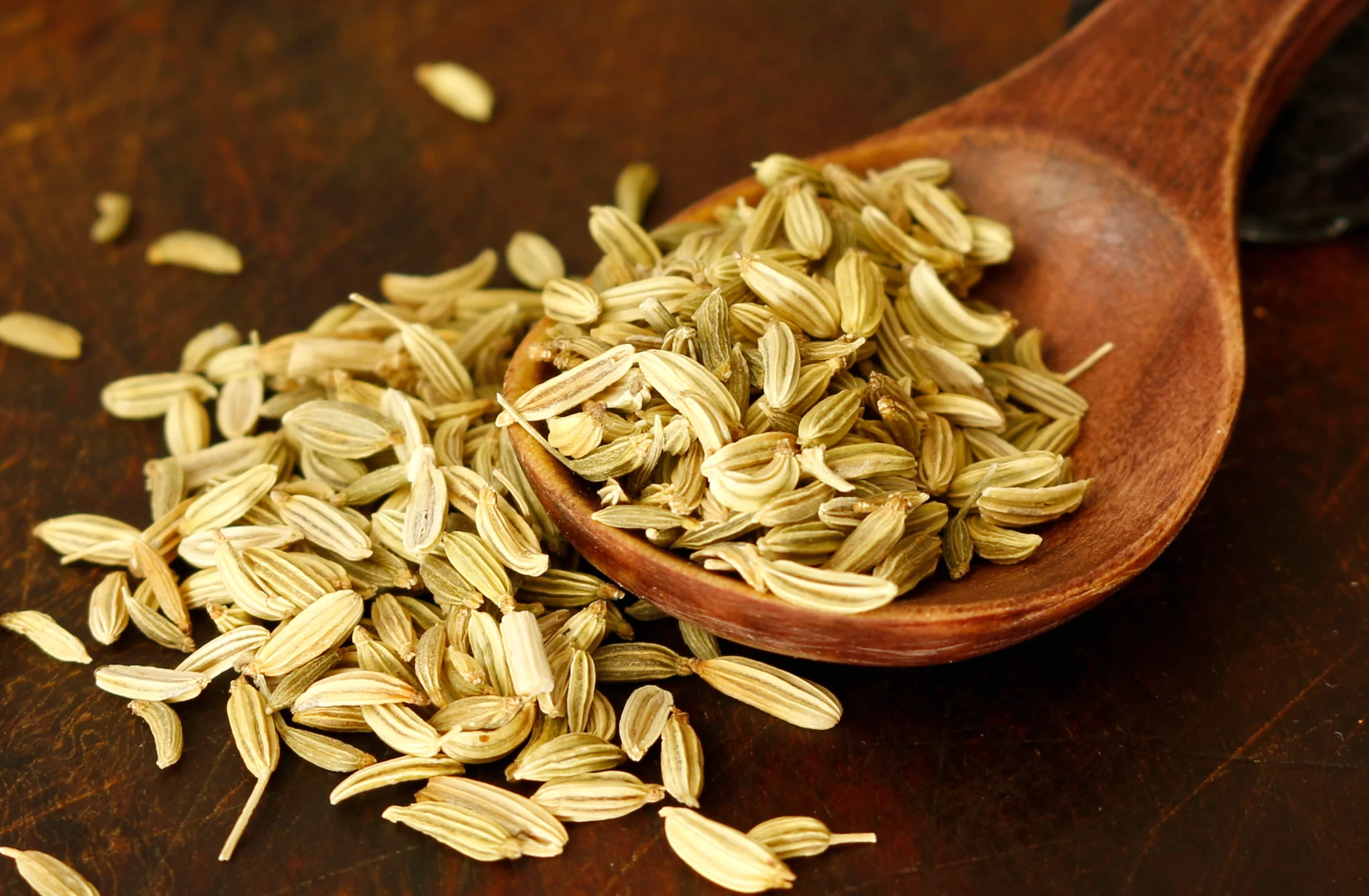

Edible Gardening
What Are Fennel Seeds Used For
Modified: January 22, 2024
Learn about the various culinary uses of fennel seeds in edible gardening. Discover how to incorporate fennel seeds into your dishes for added flavor and health benefits.
(Many of the links in this article redirect to a specific reviewed product. Your purchase of these products through affiliate links helps to generate commission for Chicagolandgardening.com, at no extra cost. Learn more)
Table of Contents
- Introduction
- Culinary Uses of Fennel Seeds
- Medicinal Uses of Fennel Seeds
- Aromatherapy and Essential Oils
- Fennel Seeds in Traditional Medicine
- Fennel Seeds in Herbal Remedies
- Fennel Seeds in Digestive Health
- Fennel Seeds in Weight Loss
- Fennel Seeds in Cooking and Baking
- Fennel Seeds in Tea and Infusions
- Conclusion
Introduction
Fennel seeds, derived from the flowering plant Foeniculum vulgare, are a versatile and highly valued ingredient in the world of culinary and traditional medicine. These small, oval-shaped seeds have a distinct licorice-like flavor and a rich aroma that adds depth and complexity to a wide range of dishes. Hailed for their numerous health benefits, fennel seeds have been used for centuries in different cultures and cuisines.
Fennel seeds have a long history of medicinal use and are known for their digestive properties. They are often consumed after meals to aid in digestion and alleviate digestive issues such as bloating, gas, and indigestion. In addition to their digestive benefits, fennel seeds are believed to have several other health-promoting properties, including antioxidant, anti-inflammatory, and antimicrobial effects.
Beyond their medicinal uses, fennel seeds are a staple in many kitchens due to their distinct flavor profile. They can be used in both sweet and savory dishes, adding a unique twist to recipes. Their versatility extends beyond cooking, as these seeds are also used in making herbal remedies, teas, and aromatherapy products.
In this article, we will explore the various culinary uses of fennel seeds, their medicinal benefits, and their role in traditional medicine. We will also delve into their potential applications in digestive health and weight loss, as well as their presence in the world of cooking, baking, teas, and infusions.
Whether you are a food enthusiast looking to enhance your culinary creations or someone seeking natural remedies for digestive issues, this article will provide you with a comprehensive understanding of the many uses and benefits of fennel seeds.
Culinary Uses of Fennel Seeds
Fennel seeds are prized for their unique flavor, which blends elements of licorice, anise, and sweetness. They add a delightful depth and complexity to a variety of dishes, making them a popular spice in many cuisines around the world.
One of the most common uses for fennel seeds is as a spice for seasoning meats and vegetables. They can be dry-roasted and ground to create a flavorful seasoning blend, or added whole to infuse a dish with their distinct aroma. Fennel seeds are often used in marinades for grilling or roasting meats, as they add a delicious herbal note.
Fennel seeds also pair particularly well with seafood, providing a complementary flavor that enhances the natural taste of fish and shellfish. They can be used in both marinades and rubs for seafood, or simply sprinkled on top of dishes as a finishing touch.
In addition to savory dishes, fennel seeds are commonly used in baking. They can be added to breads, cookies, cakes, and pastries to impart a subtle sweetness and a mildly spicy flavor. Fennel seed-infused desserts are particularly popular in Mediterranean and Indian cuisines, where their aromatic properties are appreciated.
Another popular culinary application for fennel seeds is in spice blends. They are a key ingredient in many spice mixes, such as garam masala in Indian cuisine and Chinese five-spice powder. These blends lend a unique flavor profile to a wide range of dishes, adding complexity and depth.
Fennel seeds can also be used to make homemade infusions, such as fennel-infused oil or vinegar. These infused ingredients can be used to flavor salads, marinades, and dressings, allowing you to incorporate the distinct taste of fennel seeds into a variety of dishes.
Overall, fennel seeds are incredibly versatile, adding a touch of exotic flavor and fragrance to both sweet and savory recipes. Their unique taste profile makes them a must-have spice in any well-stocked kitchen.
Medicinal Uses of Fennel Seeds
In addition to their culinary applications, fennel seeds have long been recognized for their medicinal properties. They contain various bioactive compounds that contribute to their significant health benefits.
One of the most well-known medicinal uses of fennel seeds is their ability to aid in digestion. They have carminative properties, meaning they can help relieve indigestion, bloating, and gas. The volatile oils in fennel seeds stimulate the digestive system, promoting the release of enzymes to break down food more efficiently.
Fennel seeds are also believed to have anti-inflammatory effects. They contain compounds such as anethole, which has been shown to exhibit anti-inflammatory properties. This makes them potentially beneficial for reducing inflammation in conditions such as arthritis and other inflammatory diseases.
Furthermore, fennel seeds possess antioxidant properties due to the presence of flavonoids and phenolic compounds. These antioxidants help neutralize harmful free radicals, protecting the body against oxidative stress and reducing the risk of chronic diseases.
In traditional medicine, fennel seeds have been used to alleviate respiratory issues such as coughs, bronchitis, and congestion. The expectorant properties of the seeds can help loosen mucus and facilitate its expulsion, providing relief from respiratory discomfort.
Additionally, fennel seeds are reputed to have antimicrobial properties, which may help combat certain bacterial and fungal infections. However, more research is needed to confirm these effects and determine their specific mechanisms of action.
It is worth noting that while fennel seeds offer potential health benefits, they should not replace professional medical advice. If you have any specific health concerns or conditions, it is always recommended to consult with a healthcare practitioner before incorporating fennel seeds into your routine.
Incorporating fennel seeds into your diet can be as simple as chewing on a few seeds after a meal or drinking fennel seed tea. However, if you prefer a more concentrated form, fennel seed supplements are also available in the form of capsules or extracts.
Overall, the use of fennel seeds for medicinal purposes dates back centuries, and their digestive and anti-inflammatory properties make them a popular choice for natural health remedies.
Aromatherapy and Essential Oils
Fennel seeds and their essential oil have long been used in aromatherapy for their soothing and calming properties. The sweet, herbal scent of fennel oil is believed to have a relaxing effect on the mind and body.
When used in aromatherapy, fennel essential oil can help reduce stress, anxiety, and tension. Its aromatic properties can create a calming atmosphere, promoting a sense of tranquility and well-being.
Fennel oil is often used in diffusers or added to massage oils, allowing the fragrance to permeate the air and provide a gentle aroma. Inhaling the scent of fennel oil can help alleviate mental fatigue and promote mental clarity and focus.
Beyond its calming effects, fennel essential oil is also used for its potential to support respiratory health. When used in steam inhalation or chest rubs, it may help ease congestion and promote clear breathing.
It’s important to note that when using essential oils, including fennel oil, it is essential to observe safety precautions. It is recommended to dilute the oil with a carrier oil before applying it to the skin and to perform a patch test to check for any adverse reactions. Additionally, pregnant women and individuals with certain medical conditions should consult with a healthcare professional before using fennel essential oil.
Overall, fennel essential oil offers a natural and aromatic way to promote relaxation, reduce stress, and support respiratory health. Its pleasant fragrance makes it a popular choice for those seeking a calming and uplifting aromatic experience.
Fennel Seeds in Traditional Medicine
Fennel seeds have a long history of use in traditional medicine systems across various cultures. They have been valued for their medicinal properties and are believed to offer a range of health benefits.
In Ayurveda, the ancient Indian system of medicine, fennel seeds are considered to have cooling properties and are used to balance the digestive system. They are believed to stimulate the agni, or digestive fire, and help in the absorption and assimilation of nutrients.
In Traditional Chinese Medicine (TCM), fennel seeds are highly regarded for their ability to regulate Qi, or vital energy, in the body. They are considered warm in nature and are used to promote digestion, resolve stagnation, and alleviate abdominal discomfort.
In Persian and Middle Eastern traditional medicine, fennel seeds are used to relieve digestive ailments, including bloating, colic, and flatulence. They are often brewed into herbal teas or consumed directly to soothe the digestive system and promote overall well-being.
Throughout history, fennel seeds have also been used as a natural remedy for menstrual discomfort. They are believed to have estrogen-like effects, which can help regulate menstrual cycles and reduce symptoms such as cramping and bloating.
It is important to note that while fennel seeds have been used in traditional medicine for various purposes, scientific evidence supporting these claims is limited. More research is needed to fully understand the mechanisms of action and efficacy of fennel seeds in treating specific conditions.
As with any natural remedy, it is crucial to consult with a healthcare professional before using fennel seeds for medicinal purposes, especially if you have any underlying health conditions or are taking medication.
Incorporating fennel seeds into your diet or using fennel-infused products may provide potential health benefits, but it is always recommended to seek guidance from a qualified practitioner for personalized advice and treatment.
Overall, fennel seeds have played a significant role in traditional medicine systems across the world, and their use continues to be valued for their potential health benefits.
Fennel Seeds in Herbal Remedies
Fennel seeds have been used in herbal remedies for centuries due to their potential health benefits and therapeutic properties. These versatile seeds are a staple in many traditional medicine systems and herbal practices.
One of the primary uses of fennel seeds in herbal remedies is for digestive health. They are known to have carminative properties, meaning they can help relieve digestive issues such as bloating, gas, and indigestion. Infusions or teas made from fennel seeds are often consumed after meals to aid in digestion and promote overall gastrointestinal well-being.
In addition to digestive benefits, fennel seeds are sometimes used in herbal remedies for respiratory conditions. They are believed to have expectorant properties, making them useful for relieving coughs, chest congestion, and other respiratory discomforts. Fennel seed-infused remedies, such as teas or steam inhalations, may help soothe respiratory passages and promote easier breathing.
Fennel seeds are also believed to have diuretic properties, which may help with water retention and flushing out toxins from the body. This makes them potentially useful in herbal remedies for reducing water retention and supporting kidney health.
Furthermore, fennel seeds are often used in herbal remedies to relieve menstrual discomfort. They are believed to have antispasmodic effects, which can help alleviate menstrual cramps and regulate the menstrual cycle. Fennel seed-based teas or herbal preparations may be used for their soothing properties during times of menstrual discomfort.
It’s important to note that while fennel seeds have a long history of use in herbal remedies, scientific evidence supporting their effectiveness is still limited. As with any herbal remedy, it is advisable to consult with a qualified herbal practitioner or healthcare professional before using fennel seeds for specific health concerns or conditions.
Whether used in tea blends, infusions, tinctures, or other herbal preparations, fennel seeds offer a natural and gentle approach to supporting overall wellness and addressing common health issues. Their versatility makes them a valuable addition to any herbal remedy toolkit.
Overall, fennel seeds continue to be utilized in herbal remedies for their potential health benefits, particularly in relation to digestive health, respiratory well-being, water retention, and menstrual discomfort. However, it’s important to remember that individual results may vary, and professional guidance is always recommended when using herbal remedies.
Fennel Seeds in Digestive Health
Fennel seeds have long been recognized for their beneficial effects on digestive health. They contain various compounds that contribute to their digestive properties, making them a popular choice for addressing digestive issues and promoting overall gastrointestinal well-being.
One of the primary ways fennel seeds support digestive health is through their carminative properties. Carminatives help to relieve intestinal gas, bloating, and indigestion by aiding in the expulsion of gas from the digestive tract.
The volatile oils found in fennel seeds are known to stimulate the secretion of digestive enzymes and support healthy digestion. This can help break down food more effectively and facilitate nutrient absorption.
In addition to promoting healthy digestion, fennel seeds have been used to address common digestive complaints such as flatulence and stomach cramps. The soothing properties of fennel seeds can help calm and relax the muscles of the gastrointestinal tract, providing relief from discomfort.
Fennel seeds may also help alleviate symptoms of acid reflux and heartburn. The mucilage content in fennel seeds can help coat the lining of the stomach and esophagus, creating a protective barrier against acids and reducing the burning sensation.
Fennel seeds are commonly consumed after meals as a digestive aid. They can be chewed directly or consumed in the form of fennel seed tea or infused water. These preparations help to stimulate digestion, relieve bloating, and promote overall digestive comfort.
It is important to note that while fennel seeds can be beneficial for digestive health, they may not be suitable for everyone. Individuals with certain medical conditions or sensitivities should consult with a healthcare professional before incorporating fennel seeds into their diet or routine.
Overall, the digestive properties of fennel seeds make them a natural and gentle option for supporting digestive health. Incorporating fennel seeds into your daily routine may help promote healthy digestion, relieve digestive discomfort, and support optimal gastrointestinal function.
Fennel Seeds in Weight Loss
Fennel seeds have gained popularity in recent years as a potential aid in weight loss efforts. While they are not a magic solution for shedding pounds, including fennel seeds in a balanced diet and healthy lifestyle may offer certain benefits for those looking to manage their weight.
One of the ways fennel seeds may contribute to weight loss is through their potential appetite-suppressing properties. The fiber content in fennel seeds can help promote a feeling of fullness and reduce overall calorie intake by curbing hunger pangs.
In addition to their appetite-suppressing effects, fennel seeds may also support weight loss through their potential diuretic properties. They may help reduce water retention and bloating, resulting in a temporary decrease in water weight.
Fennel seeds are also low in calories and fat, which makes them a healthy and flavorful alternative to high-calorie snacks. Incorporating fennel seeds into your diet can help satisfy cravings while providing essential nutrients.
When consumed as part of a balanced diet, fennel seeds can also contribute to improved digestion. A healthy and efficient digestive system is essential for optimal nutrient absorption and the elimination of waste, which can aid in weight management.
While there is anecdotal evidence to suggest that fennel seeds may support weight loss efforts, it’s important to approach weight management holistically and consult with a healthcare professional or registered dietitian before making any significant changes to your diet or lifestyle.
It’s worth noting that fennel seeds should be used in combination with other healthy lifestyle practices, including regular physical activity and a well-balanced diet, for long-term weight management.
Ultimately, while fennel seeds may offer certain benefits for weight loss, they should be viewed as part of a comprehensive approach to overall health and wellness.
Fennel Seeds in Cooking and Baking
Fennel seeds are a versatile ingredient that can add a unique and flavorful twist to both cooking and baking. Their distinct taste, which is reminiscent of licorice and anise, makes them a popular choice in a variety of recipes.
In savory dishes, fennel seeds are often used as a spice to season meats, vegetables, and sauces. They can be dry-roasted and ground to create a fragrant and flavorful seasoning blend. Fennel seeds pair particularly well with pork and fish, enhancing their natural flavors and adding a subtle, aromatic note.
When it comes to baking, fennel seeds can be a delightful addition to breads, cakes, cookies, and pastries. They offer a mild sweetness and a slightly spicy kick that can elevate the flavor profile of desserts. Fennel seeds can be added whole or ground to baked goods, infusing them with their unique taste.
In addition to using fennel seeds as a standalone spice, they are often incorporated into spice blends to add complexity and depth of flavor. For example, in Indian cuisine, fennel seeds are a key component of garam masala, a popular spice mix used in many traditional dishes. Chinese five-spice powder also utilizes fennel seeds to create a balanced and aromatic flavor profile.
Fennel seeds can also be used to make flavorful and aromatic infusions. Fennel-infused oils and vinegars can be used to enhance the taste of salads, dressings, marinades, and sauces. This allows the distinct flavor of fennel seeds to be infused into a variety of dishes.
Experimenting with fennel seeds in your cooking and baking can open up a world of culinary possibilities. From enhancing the flavors of savory dishes to adding a unique twist to your favorite desserts, fennel seeds offer a versatile and aromatic touch to your culinary creations.
Whether you’re a seasoned chef or a home cook looking to try something new, incorporating fennel seeds into your cooking and baking ventures can infuse your dishes with an exciting burst of flavor.
Fennel Seeds in Tea and Infusions
Fennel seeds are commonly used to create fragrant and flavorful teas and infusions that offer a range of potential health benefits. These soothing and aromatic beverages have been enjoyed for centuries in various cultures around the world.
One of the most popular ways to enjoy fennel seeds is by steeping them in hot water to create a fennel seed tea. This herbal tea is known for its ability to soothe the digestive system, making it particularly beneficial for those experiencing bloating, gas, or indigestion. The natural oils present in fennel seeds are released during the brewing process, infusing the tea with a delightful licorice-like flavor.
Fennel seed tea may also promote calm and relaxation. Its mild sedative properties help reduce stress and anxiety, making it a comforting beverage to enjoy before bedtime or during moments of rest and relaxation.
For those seeking weight management support, fennel seed tea can be a helpful addition to a balanced diet. The tea may aid in curbing appetite and promoting feelings of fullness, which can be beneficial for portion control and healthy eating habits.
In addition to fennel seed tea, fennel seeds can be included in various herbal infusions and blends. Combining fennel seeds with other complementary herbs and spices, such as chamomile, peppermint, or ginger, can create unique and flavorful blends with added health benefits.
Infusions made with fennel seeds can also be used as a natural remedy for soothing menstrual discomfort. The gentle aromatic properties of fennel seeds may help ease menstrual cramps and promote overall well-being during that time of the month.
To prepare fennel seed tea or infusion, simply steep a teaspoon of fennel seeds in a cup of boiling water for about 5-10 minutes. You can adjust the steeping time and quantity of fennel seeds to achieve your desired strength and flavor.
It’s important to note that while fennel seeds offer potential health benefits, individual results may vary. If you have any specific health concerns or conditions, it is advisable to consult with a healthcare professional before incorporating fennel seed teas or infusions into your routine.
Whether enjoyed on its own or mixed with other herbs and spices, fennel seeds in tea and infusions provide a tasty and aromatic way to relax, soothe the digestive system, and potentially support overall wellness.
Conclusion
Fennel seeds are truly a remarkable ingredient that can be enjoyed in various ways and offer numerous potential benefits. From their culinary uses to their role in traditional medicine, fennel seeds have been prized for their distinct flavor and therapeutic properties for centuries.
In the realm of culinary arts, fennel seeds add a unique twist to both savory and sweet dishes. Their licorice-like flavor and aromatic profile enhance the taste of meats, seafood, vegetables, baked goods, and more. Whether used as a spice, a seasoning, or an infusion, fennel seeds bring depth and complexity to a wide range of recipes.
Beyond their culinary uses, fennel seeds have a long history in traditional medicine. They have been regarded as a natural remedy for digestive health, respiratory issues, menstrual discomfort, and more. While scientific evidence is still limited, fennel seeds continue to be valued in various herbal practices and alternative medicine systems.
In addition, fennel seeds can be utilized in aromatherapy and essential oil applications to promote relaxation, reduce stress, and support respiratory wellness. Their pleasant aroma and potential health benefits make them a popular choice among those seeking natural remedies.
Whether used in cooking, baking, teas, infusions, or aromatherapy, fennel seeds offer a versatile and flavorful option for those looking to enhance their well-being. It is important to note that individual experiences may vary, and it is always advisable to consult with a healthcare professional before incorporating fennel seeds into your diet or wellness regimen.
Overall, fennel seeds provide a delightful and aromatic addition to various aspects of our lives, from the kitchen to our health and well-being. So, why not explore the world of fennel seeds and discover the many ways they can elevate your culinary creations and support your overall wellness?
